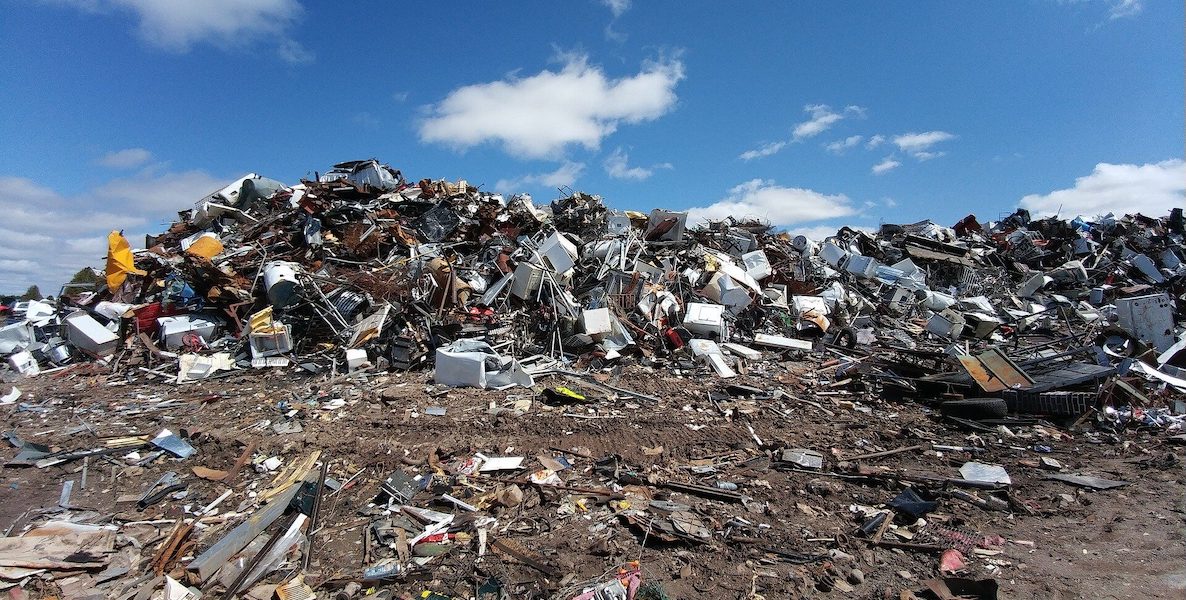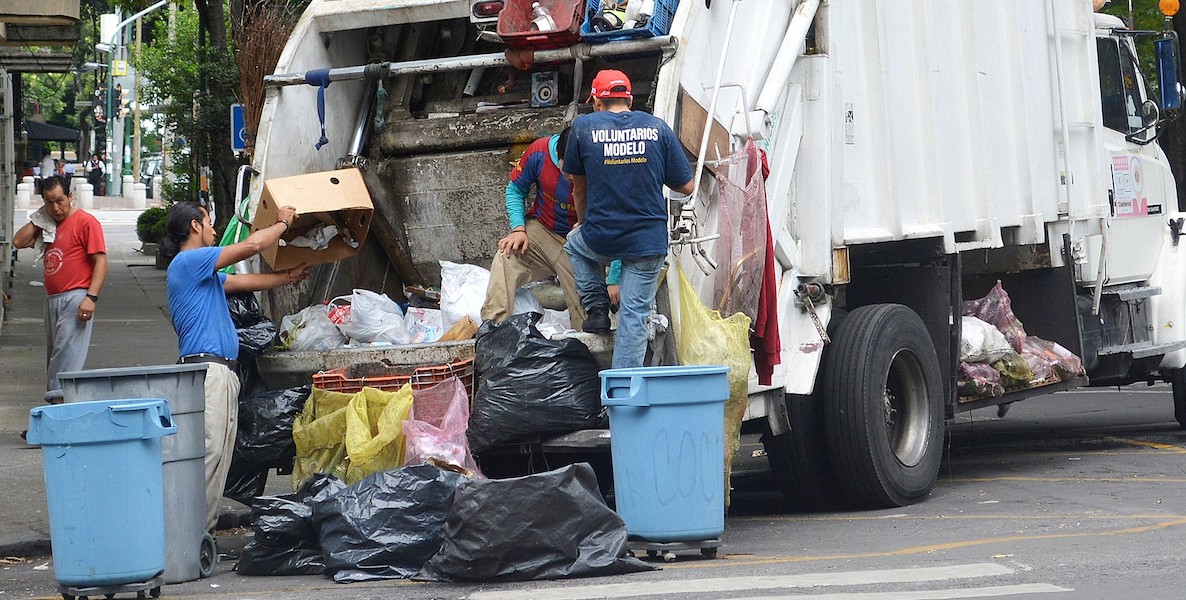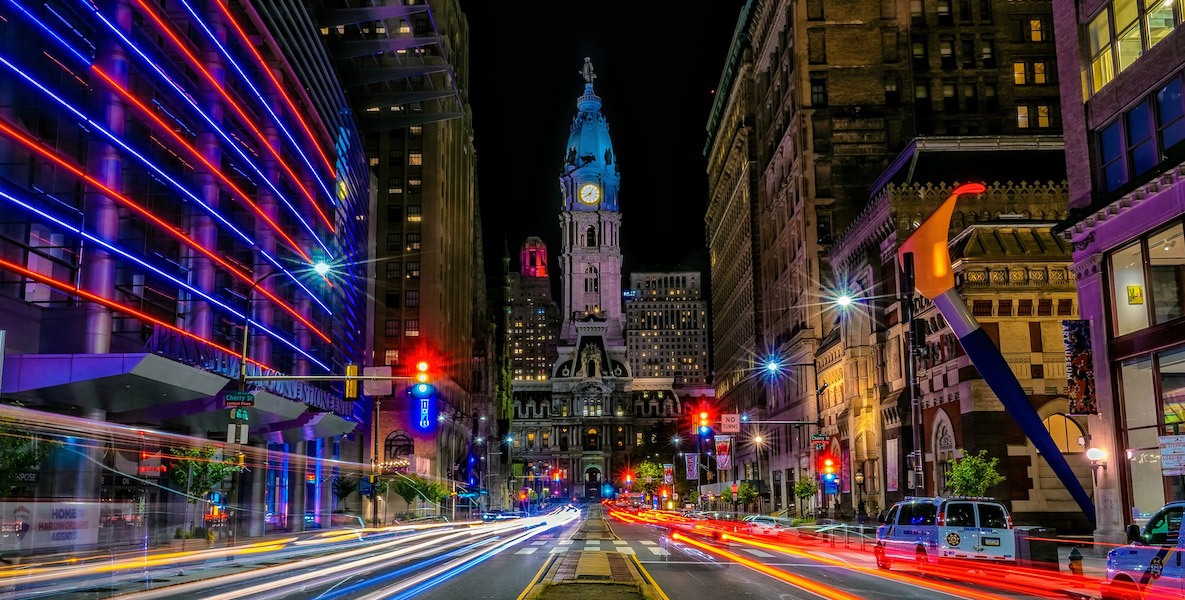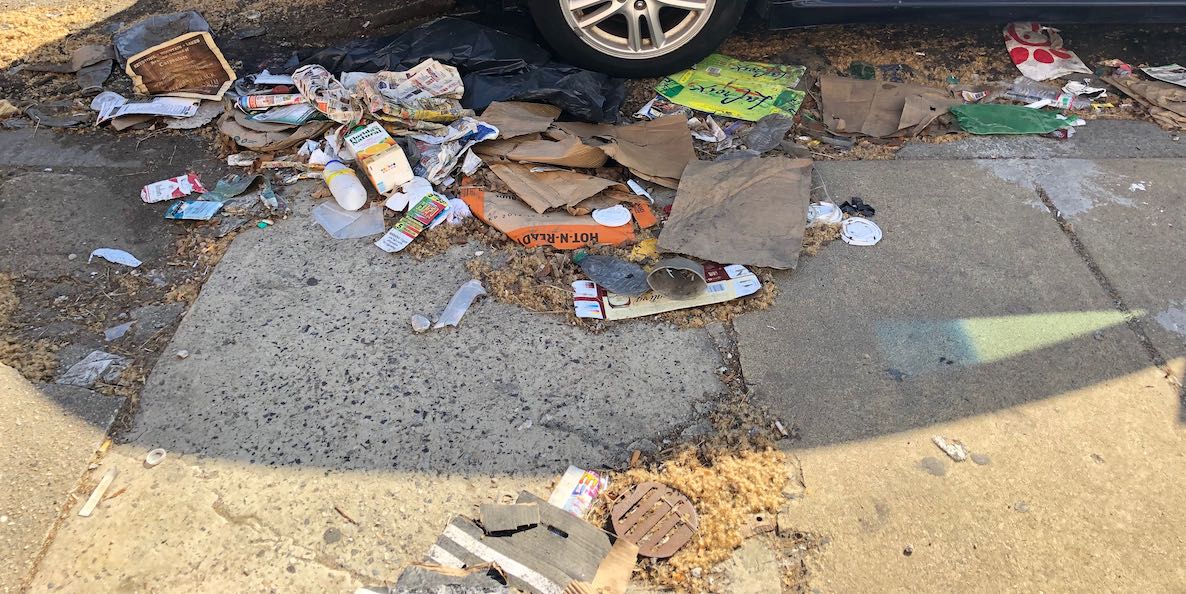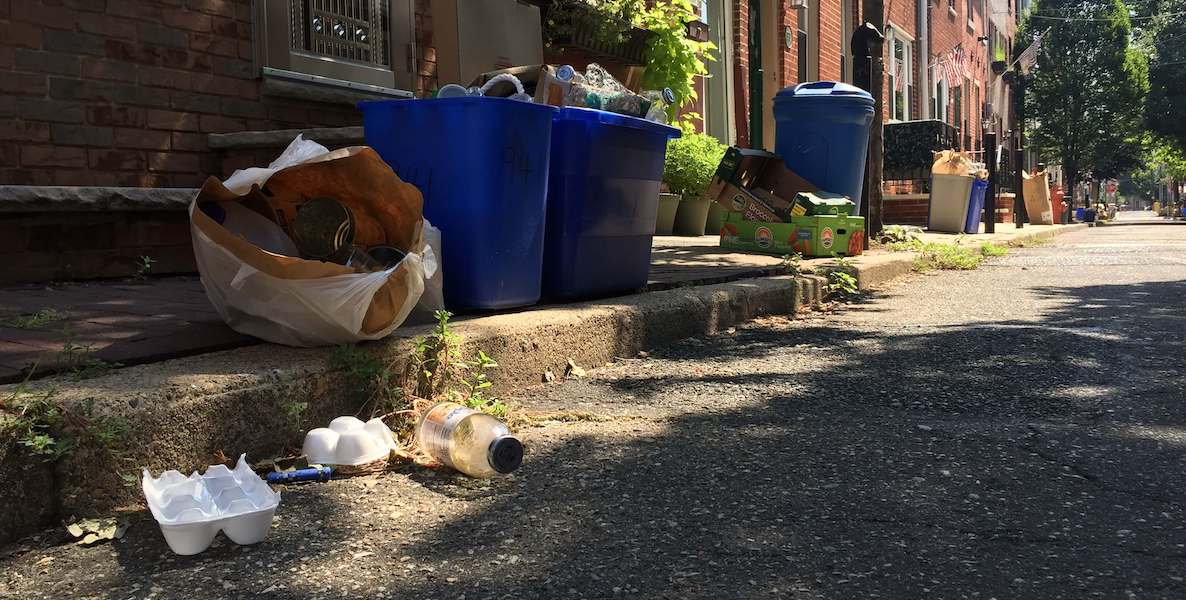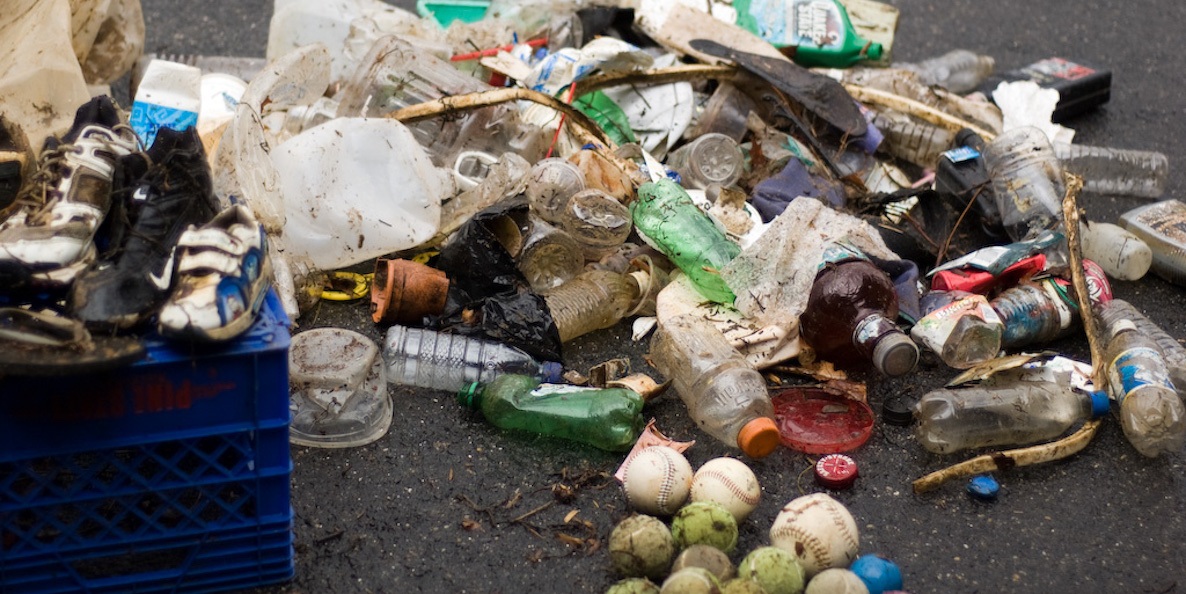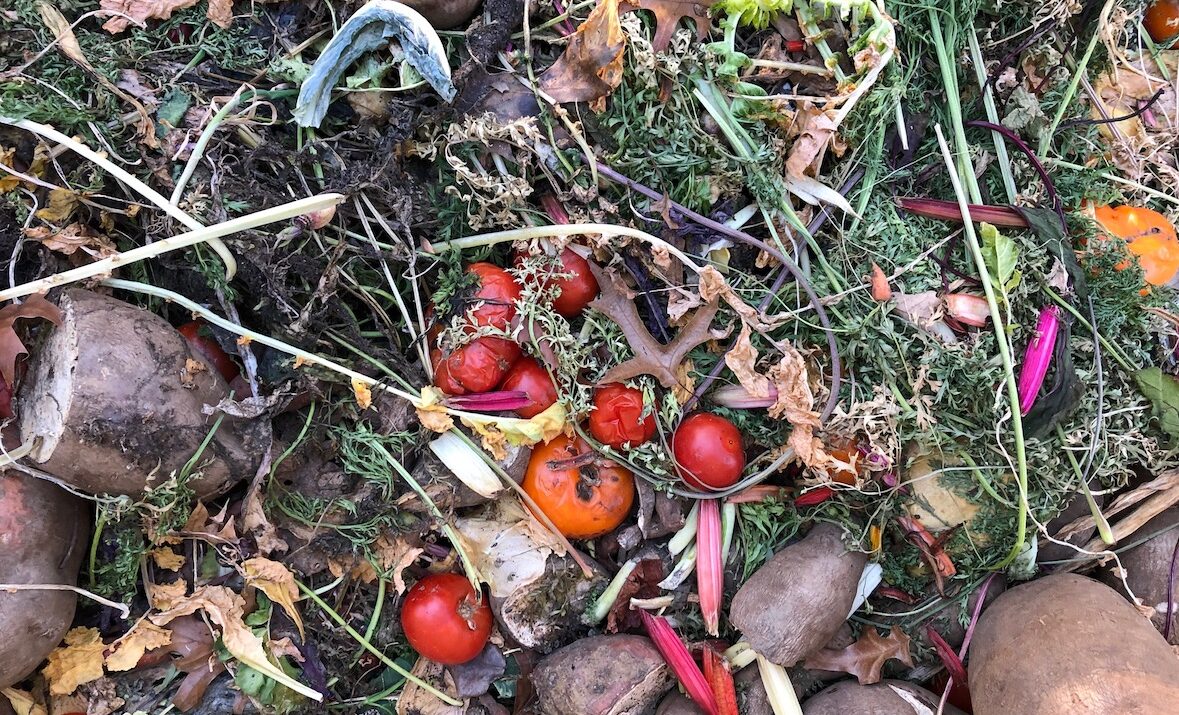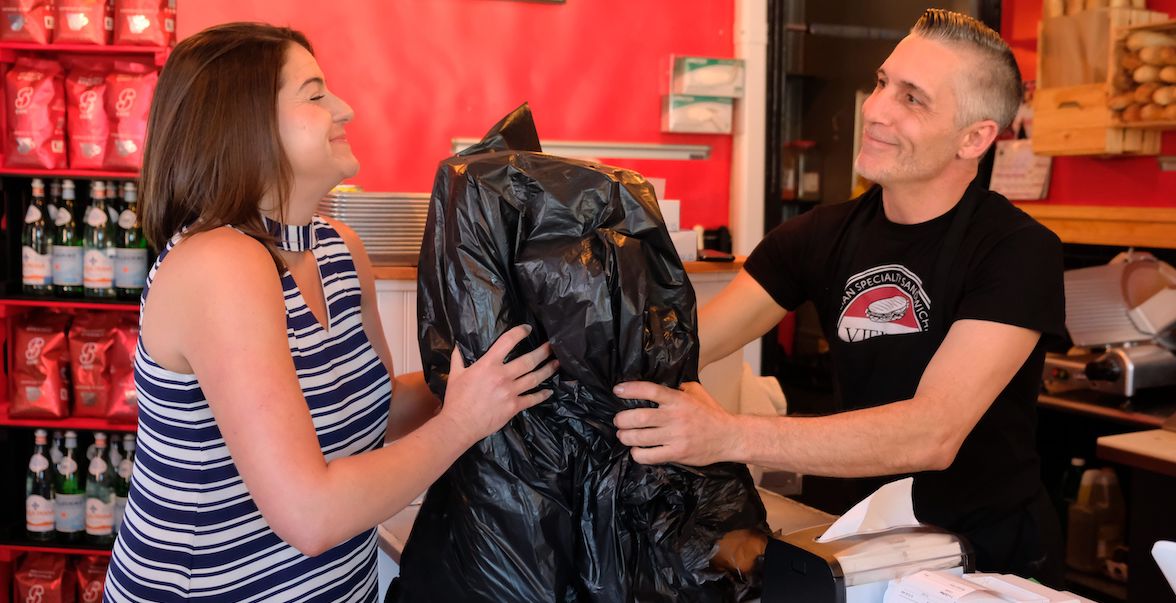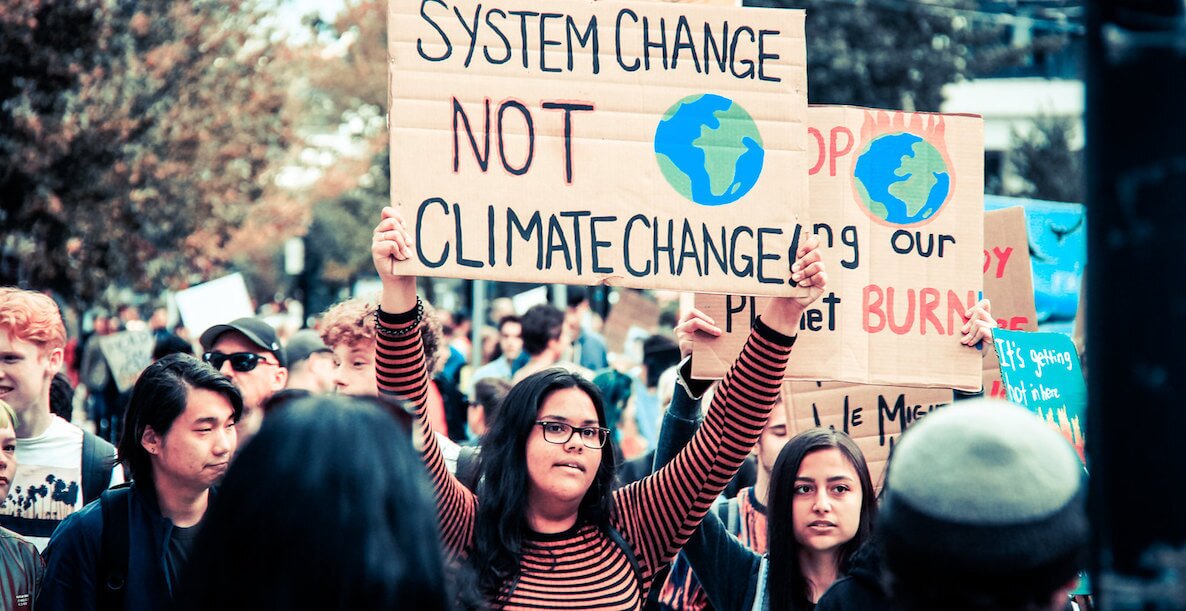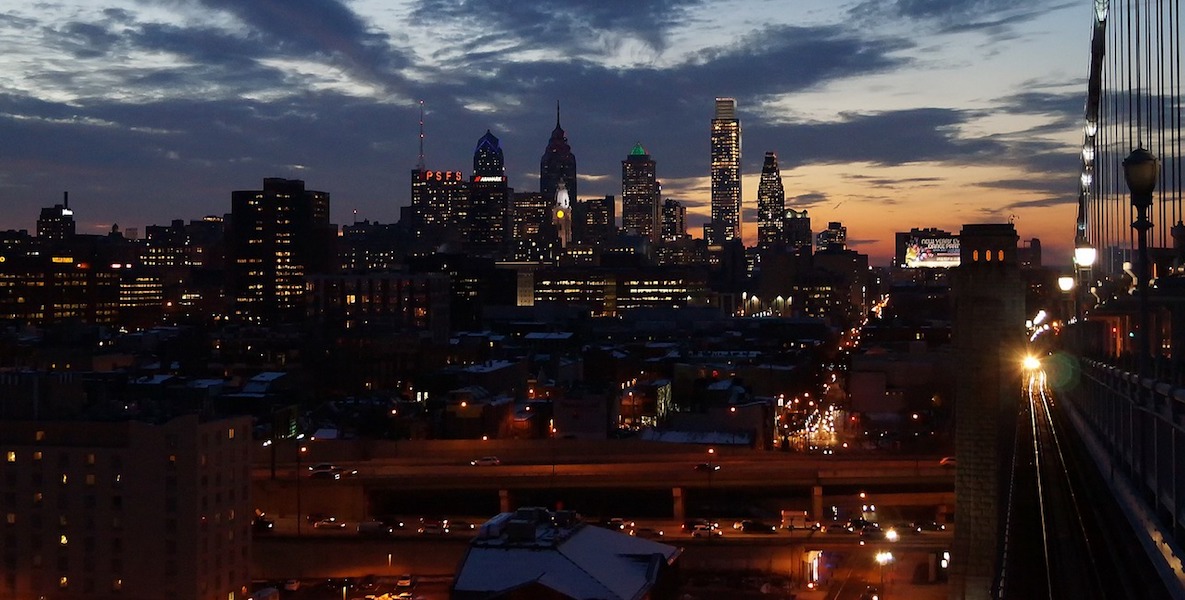As the City’s former Zero Waste and Litter Cabinet Director and a citizen who just had to drive my recycling to a sanitation convenience center after it sat outside for two-and-a-half weeks, I understand that Philadelphians want an immediate solution to our current trash collection crisis.
We also wanted an immediate solution to our filthy streets when I took the job in 2016—after the Kenney administration created the Cabinet to convene over 30 City government and external stakeholders to address Philly’s persistent waste and litter issues.
Here’s what I can tell you: There is no immediate solution to clean streets. The issues that plague Philadelphia trash and recycling are too systemic and complex to be fixed by a singular street sweeping program or fancy “don’t litter” campaign. And the current deluge of trash on our streets that, according to the administration is caused by Covid-19, only burst through because of the many cracks in our systems (that far predated the pandemic).
![]() Unfortunately, after not being properly funded or fully supported within the administration, my office and position were eliminated on June 1. The rationale for this decision was budget cuts during Covid, but it pains me to think of the amount of money the administration has spent—most likely substantially much more than what my office cost—by reacting rather than properly planning and protecting their investments.
Unfortunately, after not being properly funded or fully supported within the administration, my office and position were eliminated on June 1. The rationale for this decision was budget cuts during Covid, but it pains me to think of the amount of money the administration has spent—most likely substantially much more than what my office cost—by reacting rather than properly planning and protecting their investments.
To make any headway in solving our trash woes, we must hold our leaders accountable to make investments in long-term planning that will set our city on the track to a proactive and progressive future.
Here are my suggestions for steps toward improvement:
Follow the Zero Waste and Litter Action Plan
It was difficult to read Councilperson Katherine Gilmore Richardson’s well-intentioned op-ed urging the City to start focusing on waste reduction. We did have that focus. It’s called The Zero Waste and Litter Action Plan, which was developed by the Cabinet in 2017 and updated every year thereafter.
The City can’t repeat it’s tired anti-progress strategy of investing in a plan, losing focus or de-prioritizing, and then creating a new plan that only survives until the next crisis or change of leadership. We need to follow the plan that the City already has. The following are programs and policies already put into place through the Zero Waste and Litter Cabinet—solutions that we need to build upon.
Collect—and use—data
A key part of the plan is better understanding the problem. We need to continue things like municipal waste audits, commercial waste reports and the litter index (which takes litter ratings of public spaces to track the severity of litter conditions throughout the city) to accurately measure current conditions, use data to plan better interventions and measure performance.
One of the main critiques of the plan was that we spent too much time collecting data and not enough time just getting out there and sweeping streets. But relying on institutional observations rather than hard data to make decisions means that operations and policy staff are practically flying blind.
To make any headway in solving our trash woes, we must hold our leaders accountable to make investments in long term planning that will set our city on the track to a proactive and progressive future.
Tackle food waste
Americans waste 40 percent of the food they buy, and a third of the City’s total waste is food waste. But there’s a lack of food waste processing capacity in the region, plus the Streets Department says it would be challenging to run a third fleet of trucks to pick up compost. We need both community and public/private partnerships that are publicly funded to achieve composting at scale. Luckily we have three exciting projects to make that a reality.
- The City is very close to finalizing a contract with a private vendor to open the
 Urban Composting Facility in Juniata, which will process food waste from the selected vendor’s existing clientele, and serve some of the city’s recreation centers for free while making portions of the finished compost available to City-sponsored urban agriculture programs. But more importantly, this project will lead to PA’s first Urban Composting Permit which will open up more business opportunities for small compost businesses that could serve Philadelphians through public money. Imagine instead of one big contract with a major corporation, the city has a collection of small composting contracts with Philadelphia compost businesses right here in the city.
Urban Composting Facility in Juniata, which will process food waste from the selected vendor’s existing clientele, and serve some of the city’s recreation centers for free while making portions of the finished compost available to City-sponsored urban agriculture programs. But more importantly, this project will lead to PA’s first Urban Composting Permit which will open up more business opportunities for small compost businesses that could serve Philadelphians through public money. Imagine instead of one big contract with a major corporation, the city has a collection of small composting contracts with Philadelphia compost businesses right here in the city.
- We must also continue building our backyard composting education and community composting program, which was delayed by the pandemic this spring.
- And we need to prioritize reducing food waste. There is an incredible existing food recovery network in Philadelphia supported by the City’s Food Policy Advisory Council and other partners. Stalwart champions like Philabundance rescue tens of millions of meals every year and brilliant startups like Food Connect use app-based technology to distribute food donations. We should invest deeply in organizations like these that are helping the City completely rethink food supply chains and determine how to more efficiently feed Philadelphians.
Stop illegal dumping
To stop illegal dumping we need to follow the plan already laid out and continue our prosecution of companies that dump on neighborhoods, while also accepting that we accomplish nothing by arresting the low income worker who is caught dumping for these companies.
I support the diversion policies of the district attorney’s office and the work of the Environmental Crimes Unit in the Philadelphia Police Department who conduct deeper investigations into these companies to get to the root of who’s really behind the dumping.
To aid these law enforcement efforts, we need further regulation of waste hauling industries, like the requirement to list waste haulers on construction permits and the tire dealer license that requires state licensed tire haulers to to create the paper trail to hold businesses accountable. And finally, we need City government to work with community groups on short term activations of vacant lots to disrupt dumping and improve community. This was already proposed by the Cabinet and we could look to Pittsburgh’s Grounded PGH as a model.
Here’s what I can tell you: there is no immediate solution to clean streets. The issues that plague Philadelphia trash and recycling are too systemic and complex to be fixed by a singular street sweeping program or fancy “don’t litter” campaign.
While I agree, the City needs to manage more public trash cans, the businesses that produce all of this to-go and single use waste need to take part, too. That’s why the Cabinet created the Community Cans Program. This public private partnership uses data to strategically place cans for optimal coverage, better trash can design principles to address misuse (rather than enforcement) and coordination between business associations such as BID’s and CDC’s and the City.
Sure, sweep the streets
I was a critic of street sweeping as the initial fix when all of these aforementioned solutions needed to be put in place first. But we do need an effective, data-driven street sweeping program that’s evaluated to make sure it’s actually working properly.
Produce less waste in the first place
Waste reduction is not some pie-in-the-sky hope. It needs to be systemically thought out, using our data, available tools and new ones like the Recycling Resource Finder that helps people properly dispose of harder to recycle materials.
An economy will not survive in the 21st century with the failed make-take-trash model. We need a circular economy that responsibly manages resources while providing for all.
Completely Remake Streets Sanitation
As is painfully clear from the current state of our streets, we need a total overhaul. The City should get a contract with a reputable consulting firm to assess operations. In the meantime, here are some ideas on how we can completely rethink how waste is set out and collected.
Route smarter
The way we navigate the city to collect trash is highly inefficient; we need to introduce smart routing for all recycling and trash collections. Take BigBellies, those public receptacles with the pull-down doors that dot the city, for example.
The City was sold on these incredibly expensive—though we got many for free—solar compacting trash cans because they could reduce collections by use of sensors that alert operations when a can is full. The problem is leadership only invested in half of the technology.
Currently, these alerts go into the ether and are only captured, at best, on a print-out report the morning of a shift. When the workers go out in the truck, there’s no integrated GPS rerouting the truck to where BigBellies are overflowing. Instead, the trucks just run the same routes they always do and look for the cans on the report.
Nevermind that those cans could have started overflowing the afternoon before, or that there could be a new can just a few blocks away that just filled up, the trash is piling up because Sanitation can’t respond in real time.
As I wrote in a piece for Grid Magazine, this smart routing could also be adapted to residential collections to address the external issues of weather and workforce that are affecting us today. There are extremely smart people in Streets IT and Office of Innovation Technology (OIT) that could run this system, they just need the resources and political will.
Put a lid on it
The majority of the litter you see on the streets is a result of how trash is set out and collected. What do we expect when recycling bins have open tops and too many residents put out loose bags of trash that are quickly ripped open by squirrels and rats?
![]() Aside from keeping collections on time, mandating that residents use municipally provided, lidded trash and recycling cans (toters with attached lids) is key. I ran the numbers and if the City charged the 75 percent of households/landlords not in poverty a nominal fee for these cans, it would pay for the other 25 percent of people who can less afford the new cans. This process should be done with careful planning to ensure all different types of households—including those without ample space for cans—can participate.
Aside from keeping collections on time, mandating that residents use municipally provided, lidded trash and recycling cans (toters with attached lids) is key. I ran the numbers and if the City charged the 75 percent of households/landlords not in poverty a nominal fee for these cans, it would pay for the other 25 percent of people who can less afford the new cans. This process should be done with careful planning to ensure all different types of households—including those without ample space for cans—can participate.
Try “Pay as You Throw”
Waste reduction is a lot harder to achieve when we can put as much waste as we want curbside. The city should consider Pay as You Throw, a system that transforms municipal waste management from a tax funded service to an affordable utility.
Households are charged a yearly fee for waste management services (which can pay for those lidded cans) and allows them to put out a designated amount of waste: one can of trash, one can of recycling, one can of compost and one large item. If a household goes over that threshold, the account holder is charged extra fees.
The majority of the litter you see on the streets is a result of how trash is set out and collected. What do we expect when recycling bins have open tops and too many residents put out loose bags of trash that are quickly ripped open by squirrels and rats?
As City Council has taken up more legislation protecting low-income residents and workers over the past few years, now could be the time to enact legislation that would be effective, while also addressing the needs of low-income residents.
But it can’t be framed as a punitive measure; it should address needs without setting up a confrontational environment where neighbors will be dumping in parks or other people’s cans.
Evaluate and course correct (ie, stop blaming)
![]() Too often, City government blames the users of the system and external factors rather than the broken system, as was evident in Commissioner Carlton Williams’ Inquirer op-ed explaining the trash delays. His comments displayed the misguided ethic that has too long held the operations of this City back: resistance to measuring and evaluation because the results may tell you what you don’t want to hear. What the City needs are operations that stop blaming others and instead focus on evaluation.
Too often, City government blames the users of the system and external factors rather than the broken system, as was evident in Commissioner Carlton Williams’ Inquirer op-ed explaining the trash delays. His comments displayed the misguided ethic that has too long held the operations of this City back: resistance to measuring and evaluation because the results may tell you what you don’t want to hear. What the City needs are operations that stop blaming others and instead focus on evaluation.
We need more investment in City government initiatives like GovLabPHL and the Office of Innovation Technology. Although GovLabPHL is often known for very effectively incorporating behavioral science into City policy-making, it has also very effectively evaluated many City programs such as street sweeping.
Initiatives like this need more independent political teeth to be effective. And it’s my assertion that no government contract for any technical system should be awarded without first full vetting and then further evaluation by the Office of Innovation Technology.
Lead proactively
As I started building our litter systems and learned that five different departments were on five different work management systems that connected with each other to various degrees of effectiveness, I saw how important central decision-making is for making tech solutions in the City.
Most cities have operational oversight, like a Department of Public Works, to ensure that City operations and departments run efficiently and smoothly and that Commissioners are held accountable.
With the Managing Director’s Office (MDO) going through somewhat opaque leadership and structural transformation, now is the key time for Philadelphians to demand that the MDO and the new Managing Director deliver better quality services to Philadelphians, while continuing to focus on critical issues like poverty reduction and gun violence.
Sanitation workers should have better job titles, pay, training and resources. Any corporation knows they need to pay the cost for the quality of labor they need.
Part of that will be ensuring sanitation workers have better job titles, pay, training and resources. Any corporation knows they need to pay the cost for the quality of labor they need. The Kenney administration and the Streets Department need to work with the union to fully revamp these civil service titles for more livable wages and greater dignity in the job.
Overall we need an administration that values proactive planning; that prepares for our future, whether it’s the next generation of poverty, another pandemic or climate change.
The issues I faced during my time in government are an under-current below every facet of City operations. But, as I’ve laid out here, these issues can be solved with the right leadership, the right investment and a government that is accountable to its workers and residents.
Nic Esposito is a writer, publisher, community activist, urban farmer and circular economy professional. Nic has served as the City of Philadelphia’s Zero Waste and Litter Director and the East Kensington Neighbors Association President. He is currently a circular economy consultant, the board president of the non-profit bookstore and publishing company The Head & The Hand and co-manager of Emerald Street Community Farm in Kensington.
Photo by Katherine Rapin.


